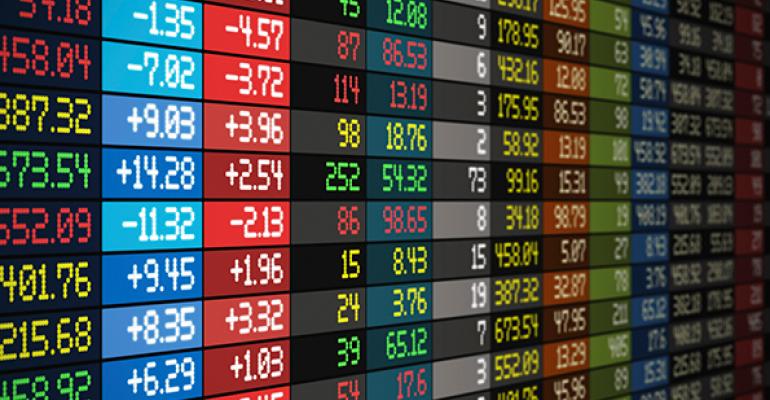By Elena Popina
(Bloomberg) --To see just how painful the start to the month has been for financial stocks, look at the widening gap between them and everything else.
The S&P 500 Financial Index fell 2.2 percent on Tuesday, the most since May, compared with a 0.8 percent decline in the full index. That gap was the widest in more than five months, data compiled by Bloomberg show. Skepticism seeped into options, with put volume on the largest exchange-traded fund tracking the sector reaching 1.5 times the 20-day average.
Investors’ exodus from the sector on Tuesday was the fastest in four months and came amid rising risks at home and abroad -- from geopolitical tensions with North Korea to concern the Federal Reserve will hold off raising rates. Uncertainty over the effect of Hurricane Irma on parts of the country already dealing with the devastation from Harvey further clouded sentiment.

“Investors have been very bullish on the group due to good earnings and expectations of help from the regulatory side of things,” said Matt Maley, an equity strategist at Miller Tabak & Co. in New York. “It’s finally starting to turn.”Banks, one of the market darlings late last year amid expectation of President Donald Trump would repeal regulations, are now the third-worst performer among S&P 500 industries in 2017. A 10 basis-point drop in the 10-year yield pushed it to the lowest level since Election Day. The future doesn’t look promising, with traders pricing in zero percent odds of a rate hike this month, down from 5 percent in mid-August.
Option traders in the largest ETF tracking the U.S. financials are taking notice. The cost for protecting against declines in the Financial Select Sector SPDR Fund hovers near the highest level since December. Seasonality plays a role here as investors traditionally get more conscious moving into September and October, according to Steve Sosnick, chief options strategist at Interactive Brokers Group Inc. A looming debt ceiling is also part of the risk.

“Markets may be worried about disruption to the money markets as a result of political worries,” Sosnick said. “Remember that the main input for banks is money, so a disruption to the supply of their main raw material could be detrimental.
To contact the reporter on this story: Elena Popina in New York at [email protected] To contact the editors responsible for this story: Arie Shapira at [email protected] Chris Nagi, Richard Richtmyer





